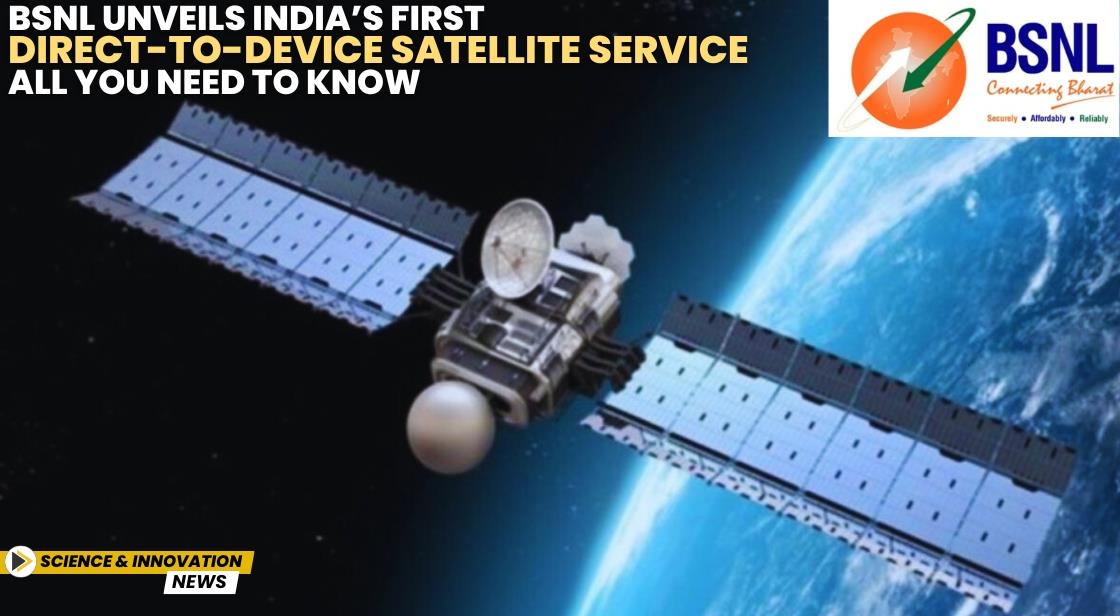BSNL Unveils India’s First Direct-to-Device Satellite Service – All You Need to Know

News Synopsis
Bharat Sanchar Nigam Limited (BSNL) has introduced India's pioneering direct satellite-to-device service, aiming to deliver reliable connectivity to even the most remote regions. Announced on Wednesday, this service is a collaborative effort between BSNL and the Department of Telecommunications (DoT), with support from California-based tech company Viasat. This breakthrough promises to bridge connectivity gaps in areas with little to no cellular coverage, making network access available where it was previously lacking.
DoT Partners with Viasat to Enhance Connectivity in Remote Areas
BSNL’s satellite-to-device service, developed in collaboration with Viasat, marks a critical step towards making connectivity widely accessible across India. Viasat, known for its advancements in communication technology, has played a pivotal role in ensuring that the satellite service is robust and reliable. The DoT’s involvement underscores the government's commitment to enhancing digital access in underserved regions, supporting initiatives that cater to both urban and rural users.
Showcased at India Mobile Congress 2024
The new satellite service was initially unveiled at the India Mobile Congress (IMC) 2024, where it received positive feedback from industry experts and government officials alike. BSNL’s demonstration at the event highlighted the potential of satellite connectivity to reduce India's digital divide, particularly in rural and mountainous areas where traditional cellular networks fall short. The service has undergone rigorous testing, showcasing its ability to maintain a stable connection even in challenging terrains, positioning it as a promising solution for remote communications.
Public Access to Satellite Connectivity in India
Previously, satellite-based connectivity was limited to government and military applications within India, or to specialized cases, such as Apple’s emergency SOS feature on the iPhone 14. BSNL’s launch marks the first time this advanced technology is being made available to the general public, expanding beyond emergency use cases. The initiative will enable users in remote regions to stay connected, bringing widespread access to a technology previously reserved for select purposes.
Meeting the Needs of Travelers and Residents in Remote Areas
BSNL’s satellite-to-device service is expected to be particularly useful for those traveling through or living in rural and isolated areas. For example, it will benefit trekkers, adventurers, and local residents in places like Spiti Valley or Rajasthan's remote villages. The service offers emergency call capabilities, SoS messaging, and even UPI payment processing, providing users with basic but essential connectivity options in areas where both cellular and Wi-Fi networks are unavailable.
Emergency and Essential Connectivity Options
The satellite service is designed to be a lifeline in emergency situations, enabling users to make calls or send SoS messages in areas without traditional network coverage. Additionally, BSNL has ensured that users can process UPI payments through this network, potentially helping those in remote areas access essential financial services. However, BSNL has not yet confirmed whether this service will support everyday activities like regular voice calls and SMS, as its primary focus appears to be on emergency and essential communication.
Non-Terrestrial Network Technology Backed by Viasat’s Satellites
Viasat’s geostationary L-band satellites play a crucial role in powering BSNL’s direct-to-device service. Positioned 36,000 km above Earth, these satellites utilize non-terrestrial network (NTN) technology to maintain reliable two-way communication. At the IMC 2024, Viasat demonstrated the capabilities of this system, showcasing the high-quality communication made possible through satellite networks. The demonstration underscored the durability and reach of BSNL’s new service, proving it capable of sustaining reliable connections over long distances.
Awaiting Details on Access and Pricing
As of now, BSNL has not provided specific details on how users can access this new satellite connectivity service. It is still unclear whether the service will be automatically bundled with existing BSNL plans or if it will require an additional subscription. Pricing structures and eligibility criteria are expected to be clarified soon, allowing customers to determine if the service will be accessible and affordable.
Looking Forward to a Digitally Inclusive India
BSNL’s new satellite-to-device service represents a significant leap towards a more connected India, ensuring that even the most isolated areas can access essential connectivity services. By extending satellite-based connectivity to the public, BSNL and its partners are bridging the digital divide and enhancing network accessibility nationwide. With further announcements expected in the coming weeks, the service may soon transform how Indians in remote areas communicate, providing a new standard for connectivity across the country.
You May Like









